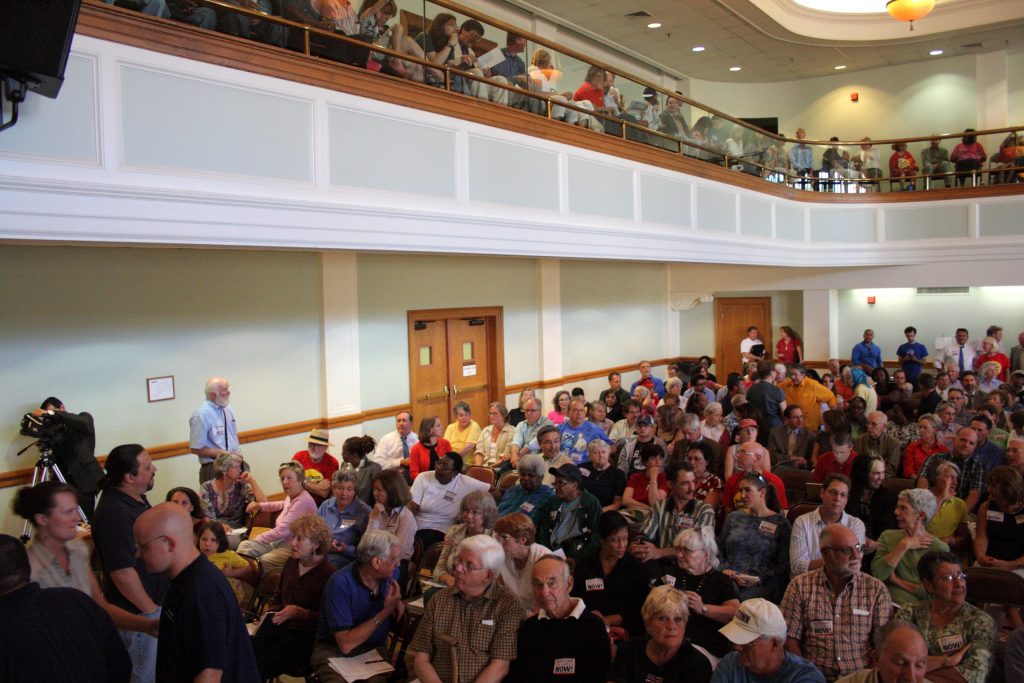Homeowners often assume that state “Sunshine Laws” require that all meetings of the Board of Directors of a community association be open to the membership. This assumption is incorrect. The Sunshine Law, also known as Open Meeting law, does not apply to community associations. The law only applies to state and county governments, boards and agencies. It does not apply to non-profit corporations except in certain cases in which the non-profit corporation receives public tax funds. Further, neither the Georgia Condominium Act nor the Georgia Property Owners Association Act (the “POAA”), require that Board of Directors’ meetings be open to the membership. As a consequence, unless a particular community association’s By-laws specifically require that Board meetings be open to the members (which some do), meetings of the Board of Directors can be closed to the members.
Why Closed Board Meetings May Not Be in the Best Interest of the Community Association
However, just because a Board can hold closed meetings doesn’t mean that doing so is a good idea. Generally speaking, conducting closed meetings of the Board is not in the best interest of the Board members or the Association. People tend to expect the worst if information is kept from them. Rather, a Board should be encouraged to have open meetings so member can observe and learn what the Board is doing. By allowing owners to attend meetings, Boards encourage owners’ enthusiasm to learn about the operation of the Association and help to develop new potential Board members and volunteers.
Using Executive Session
Oftentimes, Boards may be reluctant to open meetings to the members because they are concerned that members may learn confidential/sensitive information or disrupt the Board meeting. However, concerns over distribution of confidential information can be handled through the Board adjourning into “Executive Session”. In accordance with Robert’s Rules of Order, Boards reserve the right to go into Executive Session, and ask any non-Board members to leave the meeting, to discuss matters that are of a sensitive nature such as lawsuits, contract bids and personnel issues. By using Executive Session, Boards can keep the majority of Board meeting time open to members, but still adjourn into closed Executive Session to discuss any sensitive matters.
Handling Member Interruptions
In addition, Boards can handle concerns that opening meetings up to the membership will result in constant questions, comments and other interruptions from members by establishing set rules and regulations governing permissible member participation in meetings. Even if a Board chooses to open its meeting to the members, the Board meetings are still just that- the meeting of the members of the Board of Directors for the transaction of Association business- and the Board possesses the authority to set ground rules for when non-members are permitted to ask questions and participate in the Board meeting. For example, it is recommended that Boards set aside a certain period of time during the Board meeting, such as ten or fifteen minutes at the start of each meeting, for homeowner input. During that time, homeowners are encouraged to ask questions and make comments to the Board. However, at the end of that time, the Board of Directors goes into session and, from that point forward, homeowners cannot participate in the meeting unless specifically asked by the Board. Adopting this procedure gives the members the ability to ask questions and also allows them to stay and listen to the discussion and decisions made by the Board, without resulting in overly long, inefficient Board meetings caused by constant homeowner interruptions.
Establishing Ground Rules for Homeowner Participation
So, as you can see, while your community association’s Bylaws may allow your Board to exclude owners from its meetings, doing so may not be in the best interest of the Association. Further, through use of executive session and laying ground rules for homeowner participation, a Board can successfully involve homeowners in the operation of the Association without creating unnecessarily long and inefficient Board meetings and without raising concerns over distribution of confidential or sensitive information.


